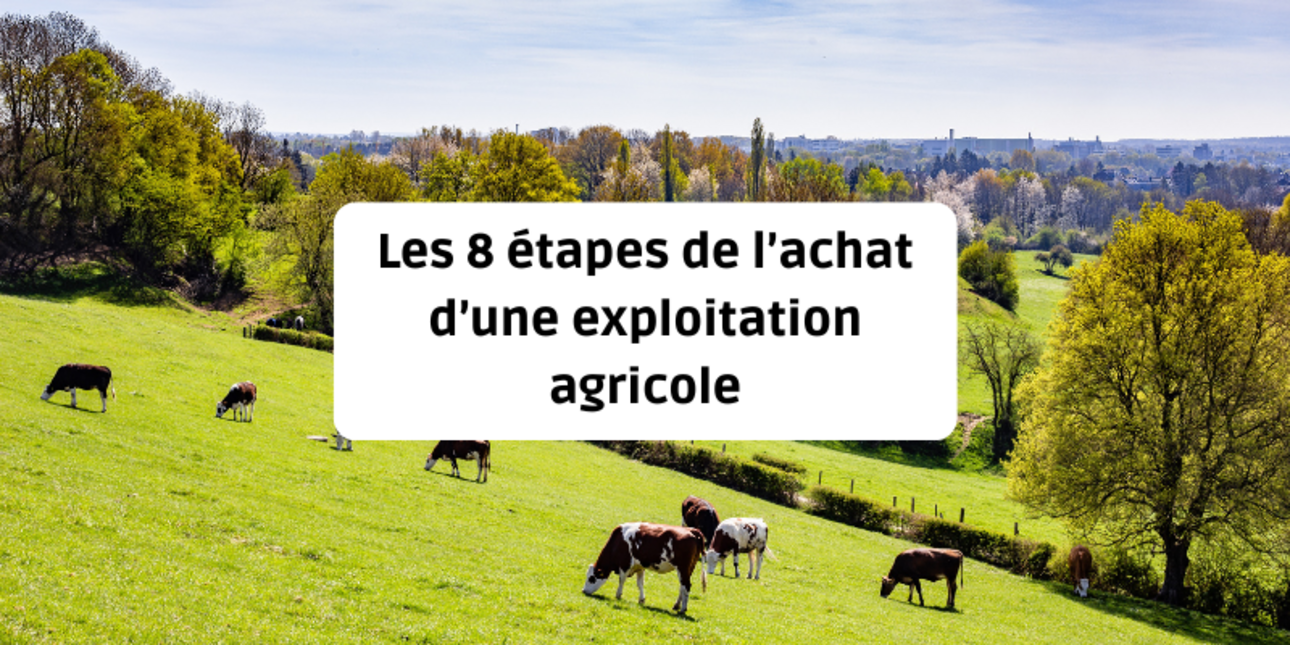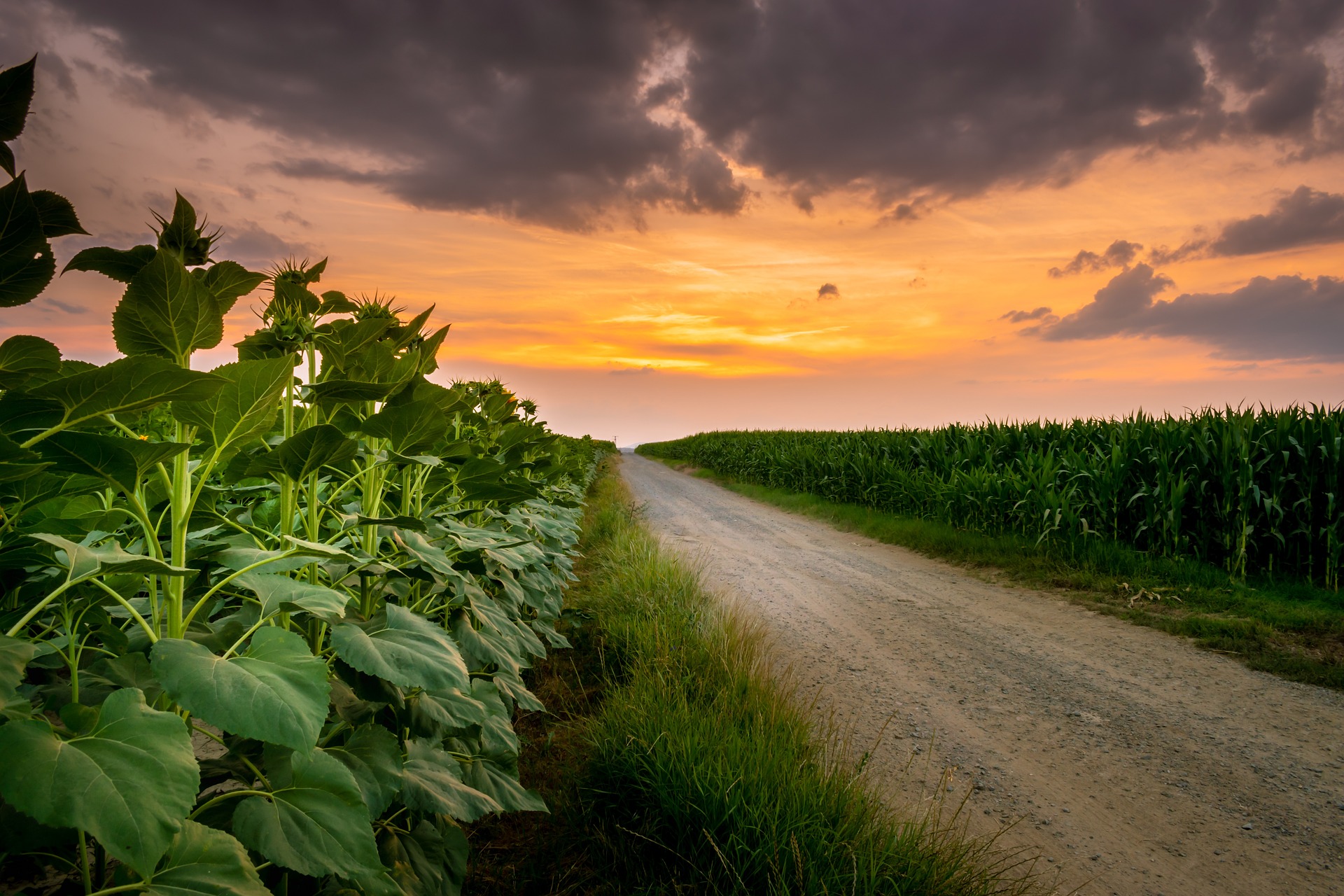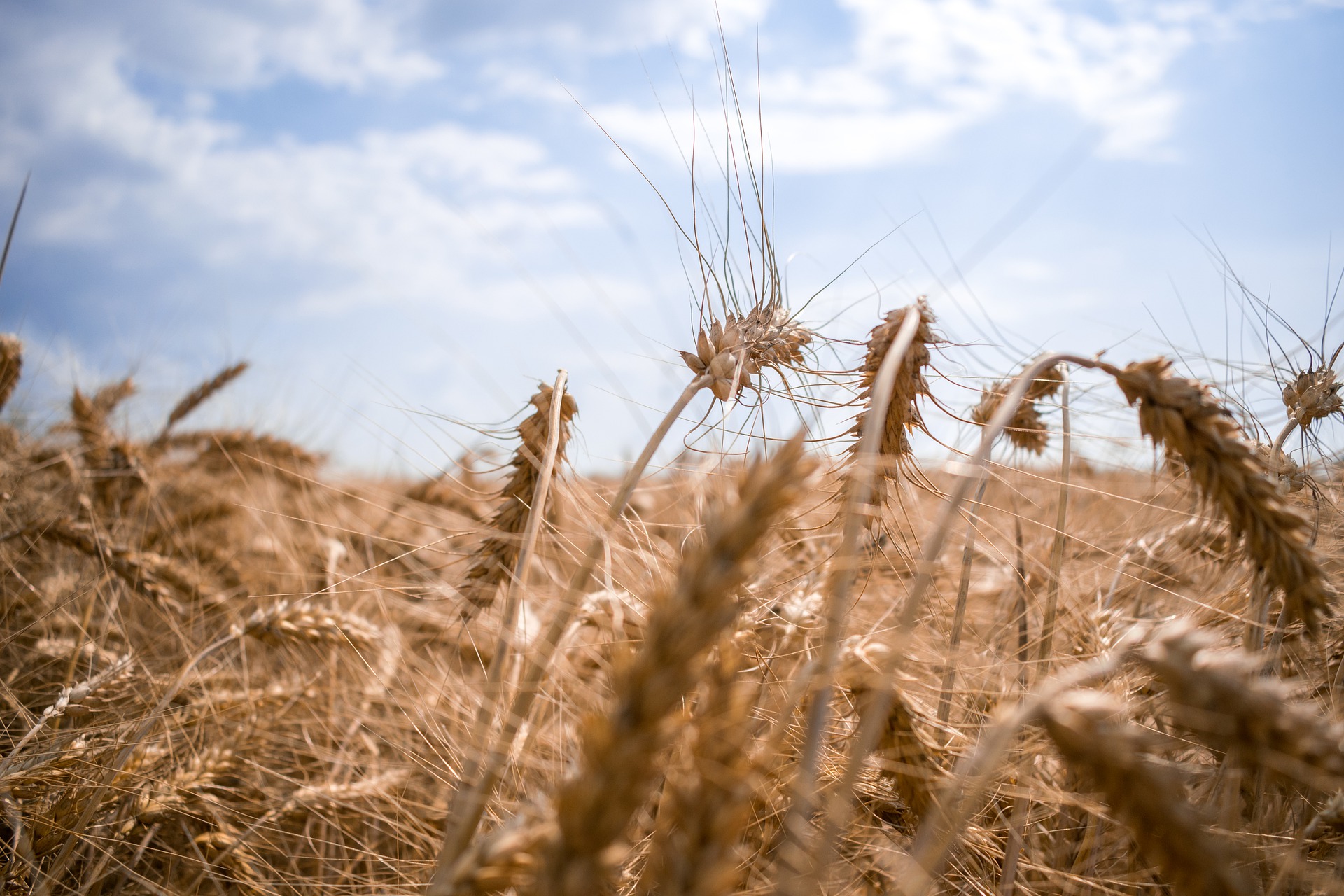
Buying a farm is a long process and we present you with the 8 different steps of this process that will commit you for many years.
For more information on how to set up a farm, you can download our white paper.

First of all, it is necessary to clearly define your agricultural project and first of all your main production. It is indeed the chosen production that will dictate the main criteria of your research. For example, the surface area required will not be the same depending on whether you want to produce cereals that you will sell to your cooperative or whether you will produce vegetables for direct sale. You will not carry out your research in the same area depending on whether you want to produce cider or medicinal plants.
This project will be more solid if it is built on concrete experience. Training and experience will give you credibility, which you will no doubt need in your future career.
Based on your project, you can define an initial budget. It will not be definitive, but it will enable you to target your research.
The budget will depend on many criteria: your self-financing, the profitability of the chosen production, the necessary investments (both for the purchase and for subsequent investments) and of course your remuneration objectives.
Good to know: The agricultural land will be the support for your project. Should you buy or rent? This will obviously have an impact on your budget. Buying land will have a much greater impact on the balance of your project. Indeed, a purchase of one hectare of agricultural land at €6,000 (average price in France) financed over 20 years at 2.50% will represent €384 in annual repayments compared to an average rental of €150.
This step will probably require professional assistance. You can turn to an accounting firm, a banker, the installation advisors at the Chamber of Agriculture, etc.
Initial contacts with sellers will also help you in this process.
With your project and budget defined, you can finally begin an active search. You can then specify your search criteria and prioritise them: with or without a house, purchase or rental of land, capacity, age and functionality of buildings, etc.
It is indeed necessary to know which criteria are fixed and which can be adapted. The perfect farm is rare and often has one main flaw, its selling price. You may therefore have to choose between your criteria.
The search can of course be done on ma-propriete-agricole.fr, whose primary vocation is to enable the installation or resettlement of farmers. You can also consult the "départ installation" directory of your department, contact the SAFER or a specialised estate agency.
If possible, avoid making too many visits. Instead, make a strong selection before visiting and prioritise your visits on these. In my experience, it is very difficult to choose a farm after having carried out a large number of visits: each farm will have its qualities and its faults, and you risk looking for the property that will have all the qualities without any faults, when it probably does not exist.
It will be up to you, when you are settled, to make your farm the ideal place you had in mind.
Finally, when you have found the farm that seems to correspond to your project, study it in detail before entering into negotiations. In addition to the mandatory diagnostics, the seller must provide you with all the information you need. This information is necessary to finalise your budget and to enable you to discuss with the seller. Is it necessary to buy land from third party owners? Are there any mandatory investments to be made in buildings, equipment or environmental standards?
Note that you will usually have to wait between 4 and 8 months before starting your new agricultural activity.
You have found your future farm, you have all the necessary information, the project is compatible with your budget. It's time to enter the discussion phase.
What can you negotiate? If the sale price is central to the negotiation, many other elements can be included in the discussion:
To succeed in your negotiation, you must show patience and empathy. It is essential to understand the objectives and motivations of the seller and any non-negotiable points. This will help you avoid making a mistake that could put an end to the discussions.
The negotiation phase is very important and it is at this stage that the use of a professional intermediary is undoubtedly the most useful. The knowledge of what is at stake for each person, the experience of negotiations and the necessary distance very often enable estate agents and notaries to finalise transactions that seemed to be badly under way.
Once an agreement has been reached, it must be finalised in a written contract: the compromis de vente (also called promesse de vente or avant-contrat). It is necessary to call on a professional to draw it up. The contract must contain the details of the agreements between the parties (which will officially close the negotiation) and give legal force to the agreement.
The drafting of this contract will take from a few days to a few weeks, depending on the complexity of the case and the progress of the steps taken by each party (particularly the financing).
It is actually more important than the final deed of sale because it is this contract that establishes the irrevocable commitment of each party and therefore your commitment to buy.
If you have gone through an estate agent or a notary, you will probably have to provide for the payment of a deposit at this stage.
You will usually need bank financing. Note that there are now many other possibilities through participatory financing or solutions for financing agricultural land. We present some of them in the Financing section of our blog.
You will need to gather all the necessary financing to complete your purchase. Your bank will usually ask you to carry out a provisional economic study before giving a written agreement. This phase can therefore take several weeks.
We advise you to finalise your financing during the negotiation phase and therefore before signing the preliminary sales agreement. An agreement from your bank will be a strong argument in your discussions and will allow you to save precious time for the rest of the process. Don't forget that it is difficult for the seller to make a commitment (and therefore go through with the negotiation) if he has any doubts about the financial feasibility of your project.
When negotiating with a bank, remember to include all the elements that make up the file: interest rates, loan duration, bank guarantees, life insurance, application fees, etc.

It is very rare that the pre-contract does not include any suspensive conditions. These conditions are mainly included in the deed to protect you. You therefore undertake to buy the farm described subject to
The list of these conditions is not exhaustive and will be negotiated with the seller.
It is therefore only once these conditions have been met that your commitment to purchase will become definitive and you will be able to finalise your purchase.
You are now ready to sign your purchase deeds.
Sales of real estate (houses, buildings, land, etc.) are subject to an authenticated deed at the notary's office. Notary fees are generally between 7 and 8%, of which a little more than 5% is tax payable to the Treasury.
Sales of movable property (equipment, livestock, etc.) may either be included in the notary's deeds or be the subject of separate private deeds (i.e. without the intervention of a notary). Deeds of sale of shares in companies may also be drawn up with or without the intervention of a notary.
The signing of these deeds will of course be accompanied by the agreed payments and then the handing over of the keys.
You have now reached the end of this acquisition process, which has taken several months. You will undoubtedly still have a number of formalities related to your takeover to complete in the first few days and weeks.
Above all, this is the beginning of your agricultural project which will carry you for many years to come